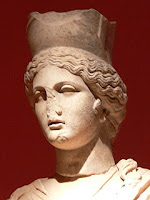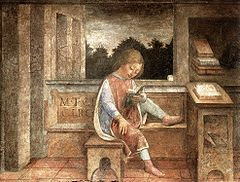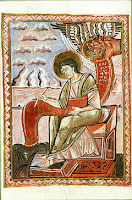I make it rule not to be bored on this blog. I might bore others, but I refuse to bore myself :). Teaching undergraduates gives me my fill of squeezing my academic interests into pretty little boxes that offend nobody. (And most importantly, make no one afraid for their grade.)
I don't study the humanities because I want to impart critical thinking skills and cultural appreciation to college students. I study them because I've always preferred the middle ages and the ancient world to our own. (Okay, maybe not to live in.)
I love the ancient world's immediacy, its handmade quality, its deep thinking (born, I believe of a profound lack of stimulation most of the time, requiring the individual mind to make up the gap). I teach classics at a university less from a desire to develop students' critical thinking, than to invite them to my favorite treehouse. If they find the view from there enlightening, well and good.
So I will still write about the humanities on Classics Daily. But the big abstract arguments about its survival do not need to be repeated here. I don't understand them anyway, since for me poetry and literature are a necessary part of life, not mental broccoli or a fluffy distraction.
Pin It





